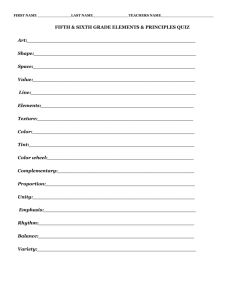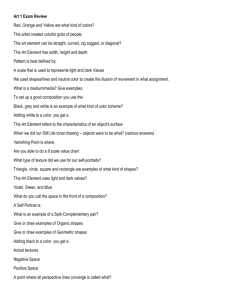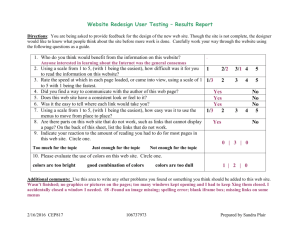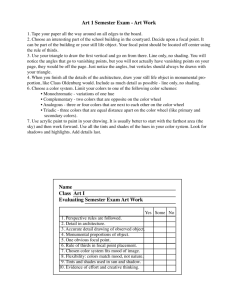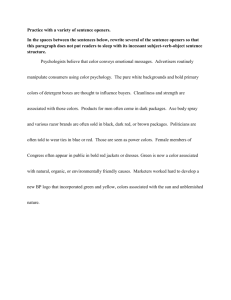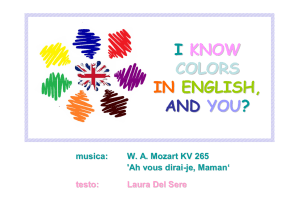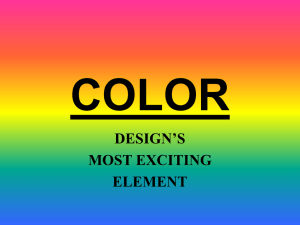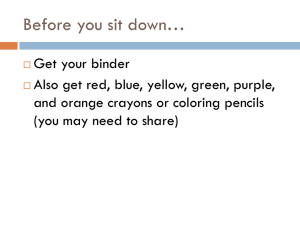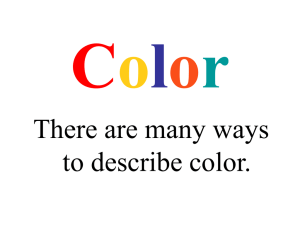COLOR
advertisement
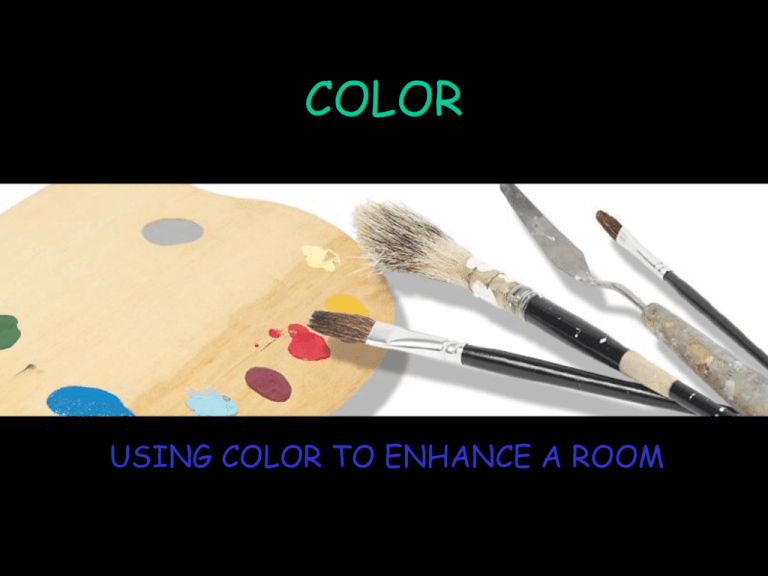
COLOR USING COLOR TO ENHANCE A ROOM COLOR • Many designers agree that color is the most significant element of design. • Individuality can be expressed through color. • Set a mood or illusion WHAT IS COLOR? • A ray of light • Light broken down in electromagnetic vibrations of various wavelengths. • Color is perceived by the eye and interpreted by the brain. • Color can influence how we feel. IDENTIFYING COLORS • Primary Colors: cannot be mixed from any other pigments (red, yellow, & blue). • Secondary Colors: mixing equal amounts of two primary colors (orange, green, & violet). • Tertiary Colors: mixing an equal amount of a primary and secondary color (red-violet, red-orange, yellow- orange, yellow-green, blue-violet, & bluegreen). WARM COLORS • Colors associated with the sun – Red – Orange – Yellow • They appear closer than cool colored objects • Used in areas of high activity. • Ex. Kitchen and Family Room COOL COLORS • Colors that capture the essence of the ocean. – Blues – Violets – Greens • You can visually enlarge a room by painting the walls a cool color • Cool colors are popular for bedrooms, bathrooms, and home offices because of the relaxing effect. THE COLOR WHEEL A tool used when working with color End for today TERMS TO KNOW • Hue: the specific name of a color – Black, white, and gray have no hue • Intensity: the brightness or dullness of a color. – You can lessen the intensity of a color by mixing it with its complement EFFECTS CREATED • High Intensity – Bright, stimulating, and makes objects stand out – Objects will seem larger and closer • Low Intensity – Muted, calming – A ceiling painted a light color will appear higher TERMS TO KNOW • Value: lightness or darkness of a color. – Basic hues in the color wheel are considered normal values. • Tint: a hue lighter than its normal value (add white). • Shade: a hue darker than its normal value (add black). TINTS & SHADES COLOR SCHEMES • Color combinations based on color wheel relationships that are used to create a mood or set a tone. • • • • • • • Monochromatic Analogous Complementary Split-complementary Triad Neutral/Achromatic Accented Neutral MONOCHROMATIC • Using the same tints, tones, or shades of the same hue. ANALOGOUS • Using three or more colors next to each other on the color wheel. COMPLEMENTARY • Using colors found directly across from each other on the color wheel SPLIT-COMPLEMENTARY • Combining a color with the two colors found on either side of the original color’s complement. TRIAD • Using three colors spaced evenly from each other on the color wheel. NEUTRAL • Using whites, blacks, grays, and beiges. ACCENTED NEUTRAL • Using neutral colors with a small amount of one bright color.
